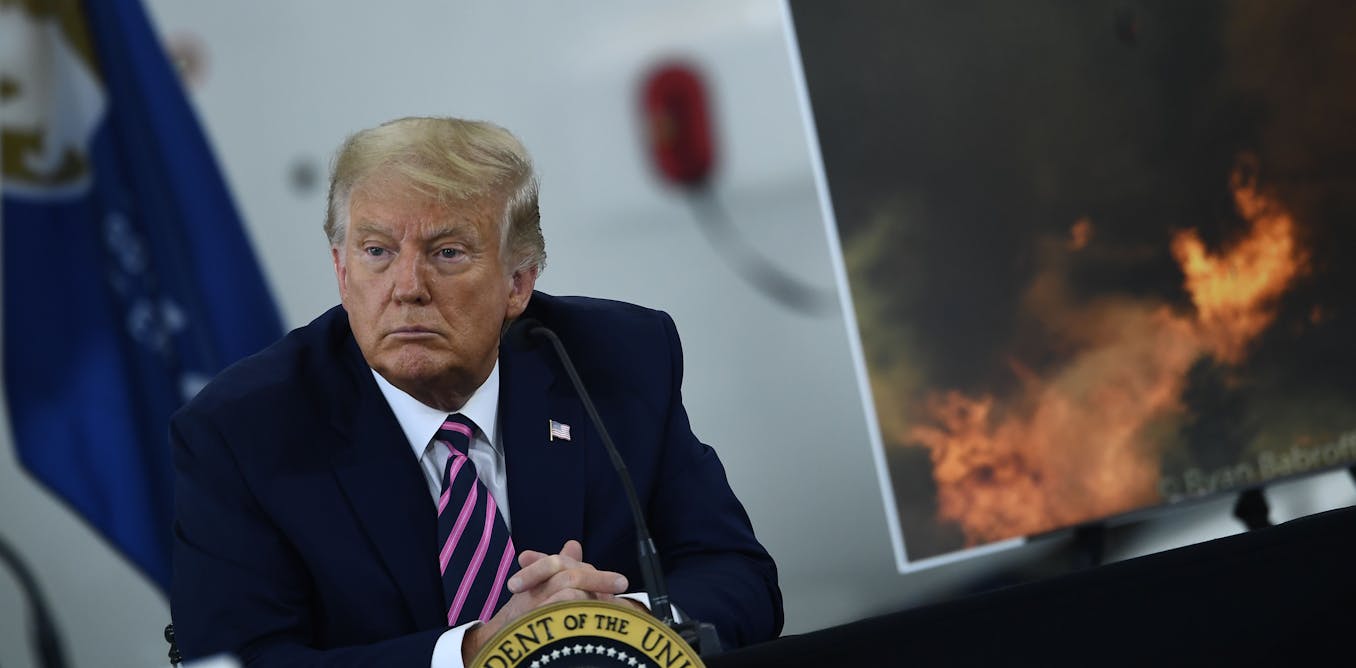Donald Trump has signed an executive order committing to pursue federal death sentences and pledging to ensure that states have sufficient supplies of lethal injection drugs for executions.
The order promises that Trump’s attorney general will seek capital punishment for “all crimes of a severity demanding its use”, specifying that the US will seek the death penalty in every case involving murder of law enforcement and a capital crime committed by an undocumented person, “regardless of other factors”. Trump has also pledged to pursue the overruling of longstanding US supreme court precedents that limit the scope of capital punishment.
Experts say the order is filled with vague campaign rhetoric, and that some of the actions it promises could be unconstitutional, infringe on defendants’ rights and intrude on state laws and processes. Many of the broad pronouncements, if carried out by his attorney general, could face major legal challenges.
Despite the ambiguity of the president’s directive, it marks a stunning reversal of the policies of the Biden administration and comes at a time of significant, bipartisan opposition to capital punishment in the US, fueled by multiple recent executions and capital cases of people with credible innocence claims.
The order will be significantly stunted by one of Joe Biden’s final clemency actions – resentencing 37 out of 40 people on federal death row to life imprisonment without parole.
Trump’s first term was marked by 13 federal executions in rapid succession – more people put to death in the federal system than under the previous 10 presidents combined – and Biden’s grants saved dozens from an expected resurgence in state killings under Trump.
Trump’s order directs the attorney general to evaluate the prison placements of the 37 people re-sentenced by Biden “to ensure that these offenders are imprisoned in conditions consistent with the monstrosity of their crimes”. It also says the attorney general shall “evaluate whether these offenders can be charged with state capital crimes and shall recommend appropriate action to state and local authorities”.
Those pledges are dubious, experts said.
“The idea of going back to states where crimes were committed to see if states can prosecute capitally is probably unconstitutional in terms of double jeopardy,” said Abraham Bonowitz, executive director of Death Penalty Action, a group fighting to abolish capital punishment. “So much of this seems vengeful, not just about individual prisoners, but also just to poke back at President Biden’s commutations.”
The order is largely “bluster and grandstanding, because there’s really nothing new he can do”, said Bonowitz. “The real question is, does the rule of law continue to matter to the courts?”
Robin Maher, executive director of the Death Penalty Information Center, said it did not seem likely state prosecutors would choose to re-try defendants commuted by Biden, given that they are already imprisoned for life with decades-old cases. Regarding the president’s commitment to place the 37 commuted people in prison environments that match the “monstrosity” of their convictions, “there is a constitutional limitation on his ability to put people in conditions that would be tortuous and inhumane,” she said.
Ruth Friedman, director of the Federal Capital Habeas Project, which represents death row defendants, said the US Bureau of Prisons has long decided prison placements based on a range of criteria, including defendants’ needs and safety concerns: “I have to assume they’ll continue to do their job. I don’t see why the president or attorney general would become part of that system.”
Supreme court precedent has long limited the scope of capital punishment, establishing that people cannot be executed for non-homicide offenses such as rape and that youth and people with certain intellectual disabilities are ineligible. Trump’s order does not specify rulings he would seek to overturn, but the messaging is aligned with a push by conservative legal groups to expand the death penalty, said Natasha Minsker, policy adviser with Smart Justice California, a criminal justice reform group.
Despite the ultra-conservative, pro-Trump bent of the supreme court, some justices have been aligned with former justice Anthony Kennedy, who authored several key decisions in favor of capital defendants, Minsker noted.
“Even though the practical impact of the executive order is close to zero, it’s still deeply concerning for an executive to throw his weight behind the death penalty given the many flaws with the system – and particularly an executive who has shown no regard for following the law or constitution and has been very vocal about his desire to go after political rivals,” Minsker said. “It’s a recipe for the worst kind of dictatorship.”
The notion of requiring the death penalty to be automatically pursued in certain classes of cases would violate well-settled constitutional law about defendants’ rights, said Cassandra Stubbs, director of the ACLU Capital Punishment Project.
The order’s pledges about influencing state cases was also unclear, said Stubbs, emphasizing that the federal government cannot control state-level prosecutions, which are the majority of criminal cases in the US: “It’s too early to know whether it’s just bluster or they are planning efforts that would likely be challenged as unlawful entanglement in state law and that would go beyond what the executive branch has authorization to do.”
Stubbs said she was also alarmed at the order’s language, noting that executions have been used since “before” the founding of the US: “Capital punishment was a major part of statutes for people helping enslaved people escape slavery. The fact that the practice is longstanding is not the strongest defense.”
The order does not specify how the attorney general would ensures states have “a sufficient supply of drugs needed to carry out lethal injection”. Nine states put people to death last year, including South Carolina, which revived executions after a 13-year pause caused by pharmaceutical companies no longer supplying lethal injection drugs due to public pressure. South Carolina and other states with leaders committed to capital punishment have continued executions in part by passing laws shielding the identities of suppliers.
“There is so much secrecy about the process of obtaining drugs for execution, so it’s really hard to know what the federal government would do to solve this,” said Maher. Major pharmaceutical corporations have already stopped selling its products to prisons for execution and the European Union has banned exporting these drugs to the US for capital punishment, she noted: “Unless the federal government plans to go into the pharmaceutical-making business, I’m not sure how that is going to be accomplished.”
The White House did not immediately respond to inquiries on Tuesday.
Trump’s efforts could be costly, Maher added: “For a president who says he’s looking to reduce government waste … the death penalty is one of the most expensive public policies.”
Bonowitz said he wished Biden had commuted everyone on death row, including those convicted of mass killings and hate crimes, whose death sentences were preserved.
“When it’s OK for the government to kill a terrorist, then soon it becomes OK for them to label some other crime as equally horrific and begin to execute people,” he said. “Is Donald Trump going to decide that someone countering the goals of this administration is a traitor or seditionist punishable by death? It seems like a stretch now, but that’s the path we’re on. And that’s one of the reasons why we believe the government can’t be trusted with the power to kill.”

 German (DE)
German (DE)  English (US)
English (US)  Spanish (ES)
Spanish (ES)  French (FR)
French (FR)  Hindi (IN)
Hindi (IN)  Italian (IT)
Italian (IT)  Russian (RU)
Russian (RU)  4 hours ago
4 hours ago
























Comments